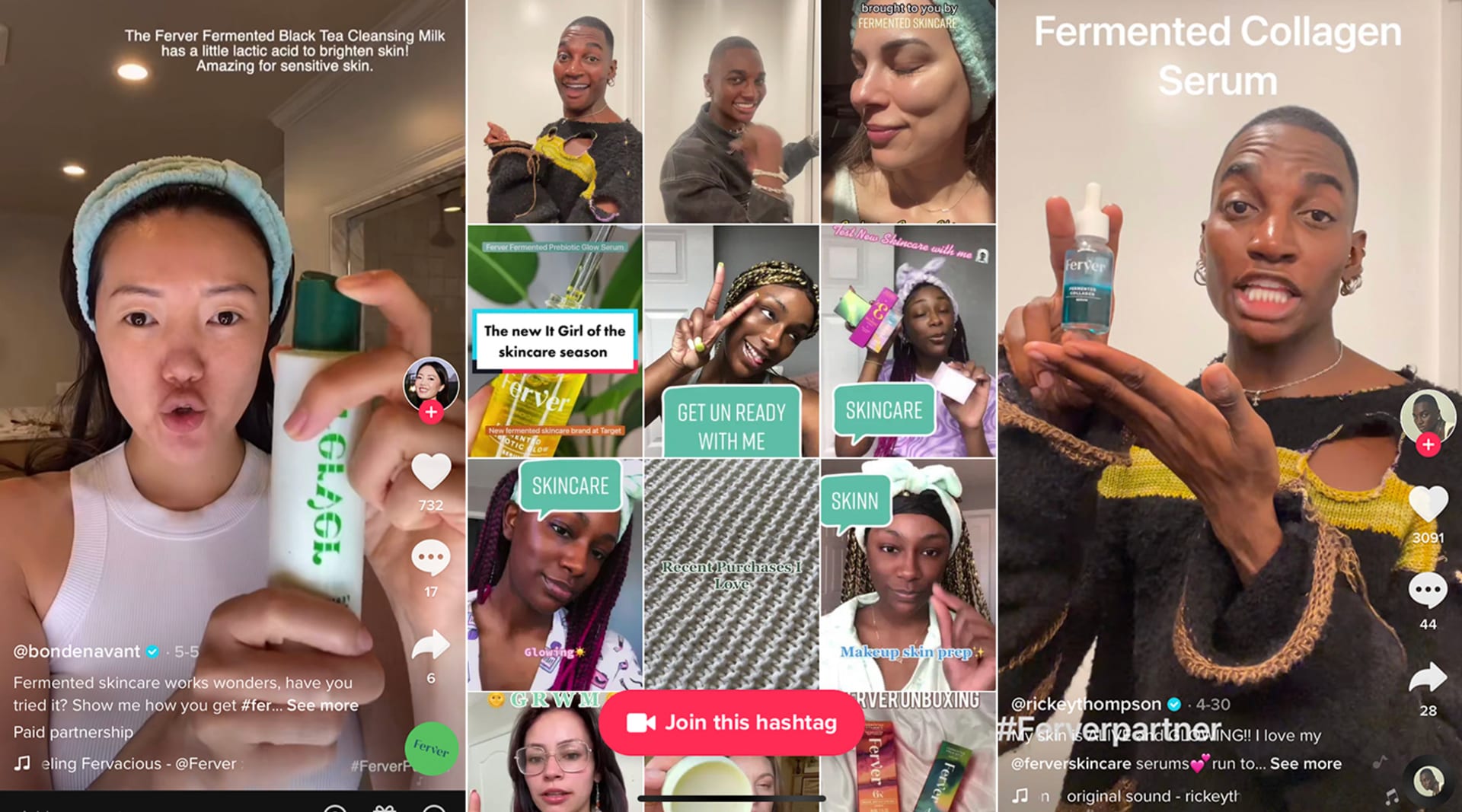Predictions by eMarketer forecasts that US influencer
marketing spending will reach more than $4 billion in 2022 – a 12% increase from 2021 – but what kind of influencers are consumers drawn to in 2022? Brands across industries are turning to experts to promote their services as consumers turn to professional, verified sources to direct their product choices.
Brands are turning to professionals to promote their products and services in the next iteration of genuinfluencers.
Verified experts
Unilever is leveraging skincare experts on TikTok to explain the benefits of its new skincare line this spring. Ferver, which harnesses fermented skincare for a wealth of proclaimed benefits, launched in February and has since been promoted by dermatologist Dr. Lindsey Zubritsky (@dermguru) with 477,000 followers, beauty influencer and well-known skin care expert Amy Chang (@Bondenavant) with 1.3 million followers, and even a medical student: Arhem Barkatullah (@arhemba) with 65,000 followers. All promoted the new brand with talk of the science-backed product line to an audience that already trusted their product judgement. Laura Fruitman, CEO of Unilever’s in-house beauty incubator The Uncovery, spoke to Glossy: “We know our consumer is looking for the science, so we wanted to include a derm, but also [make it] fun.”
Crypto-influencers
Others are turning to professionals in separate industries to represent and influence a new type of following. In May, users could begin posting NFTs on Instagram. The trial tested 16 influencers, including UConn women’s basketball star Paige Bueckers. Users could share their NFT collectibles for free on Instagram by connecting a third-party digital wallet, after which they’re able to post tokens they’ve created or purchased.
There’s a wealth of money being funneled into upcoming campaigns for influencer support. Crypto-influencer Irene Zhao is raising funding led by Blockchain Capital that “aims to ‘supercharge’ influencers’ output with non-fungible tokens,” according to The Block. The startup, called SO-COL, is valued at $100 million according to people close to the company. Zhao said the brand is “helping all the creators and influencers who are completely web2 to get into web3 by giving them a very simple user interface.”
The new genuinfluencers
Expert influencers are leading the way in influencer marketing, paving a path for brands and trying to entice consumers with authentic and verified services. Genuinfluencers aren't going anywhere: British advertising company Oglivy announced that it would no longer work with influencers who alter bodies or faces in April, and in May, Boots and Dove both pledged to stop altering faces and bodies of influencers and models in their social campaigns. As brands move on from authenticity to expert credibility, expert influencers seem to be the next focal point for social brand campaigns.
Main image left to right: @bondenavant, #ferverskincare, @rickeythompson. Courtesy of TikTok.
Please provide your contact information to continue.
Related Content


